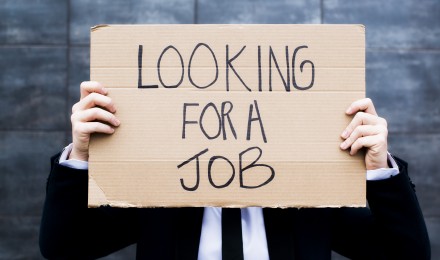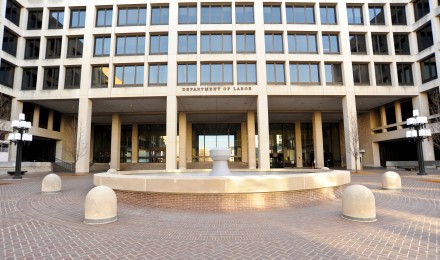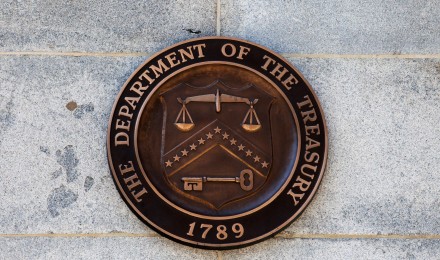At the end of 2012, there are a number of economic changes that will automatically go into effect if Congress does not act to stop them. Other measures need to be passed in order to prevent even more problems. It seems that all these changes have been put off before, but now they have accumulated and will occur at the same time. The whole package of changes that need to be made to prevent serious economic problems is referred to as the Fiscal Cliff.
Since being re-elected, President Obama has been trying to work with Congress to provide some real solutions. The first proposals have been rejected. Here are the major negotiating obstacles that make up the Fiscal Cliff.
The Rise in Income Taxes
For the past 12 years, the Bush Tax Cut has kept the level of personal income taxes low. Economic problems were deemed to be too harsh on many people, and this tax reduction was designed to provide tax relief. News.Yahoo.com says that the present tax levels of 10, 15, 25, 28, 33 and 35 percent will become 15, 28, 31, 36 and 39.6 percent. President Obama would like the rates to remain the same except for those who make more than $200,000 per individual, or $250,000 per family, where it would go back to pre-2001 tax rates.
Capital Gains Tax
This tax is largely aimed at those who make more than $200,000/$250,000. Taxes on capital gains and dividends will increase to 20 percent for the top four brackets, but will rise to 10 percent from zero for the lowest bracket.
An Increase in Estate Taxes
This tax is now set at 35 percent, and it is applied to money and assets that are being passed on to the heirs. Without any action, this will be increased to 55 percent, but the first $1 million is excluded.
Payroll Tax Cuts
Because of the economic problems, the amount of money that was withheld from paychecks for Social Security was reduced as part of the Bush tax cuts. This went from 6.2 percent to 4.2 percent. It will return to its previous level on January 1.
Expiration of the Unemployment Benefits
After many people lost their jobs, they were still unable to find new ones for some time. This led to more than one extension of the unemployment benefits a person in this position might normally receive. These benefits will expire unless they are renewed.
Spending Cuts for Many Government Programs
Another potential problem is that a large number of spending cuts (called the “Sequester”) will be put into place on many government programs, including the military. This will be cuts to the amount of $1.2 trillion. Medicare will also be affected because doctors will now be facing a double-digit cut for patients that they treat in the government program. Altogether, CNBC says, there will be more than 1,000 government programs that will have their budgets reduced.
One thing that may add to the problems of the fiscal cliff, according to the Tax Foundation, is that the US Government cannot borrow any more money without approval from Congress. Naturally, this could take a considerable amount of time to get passed.
At the end of 2012, there are a number of economic changes that will automatically go into effect if Congress does not act to stop them. Other measures need to be passed in order to prevent even more problems. It seems that all these changes have been put off before, but now they have accumulated and will occur at the same time. The whole package of changes that need to be made to prevent serious economic problems is referred to as the Fiscal Cliff.
Since being re-elected, President Obama has been trying to work with Congress to provide some real solutions. The first proposals have been rejected. Here are the major negotiating obstacles that make up the Fiscal Cliff.
The Rise in Income Taxes
For the past 12 years, the Bush Tax Cut has kept the level of personal income taxes low. Economic problems were deemed to be too harsh on many people, and this tax reduction was designed to provide tax relief. News.Yahoo.com says that the present tax levels of 10, 15, 25, 28, 33 and 35 percent will become 15, 28, 31, 36 and 39.6 percent. President Obama would like the rates to remain the same except for those who make more than $200,000 per individual, or $250,000 per family, where it would go back to pre-2001 tax rates.
Capital Gains Tax
This tax is largely aimed at those who make more than $200,000/$250,000. Taxes on capital gains and dividends will increase to 20 percent for the top four brackets, but will rise to 10 percent from zero for the lowest bracket.
An Increase in Estate Taxes
This tax is now set at 35 percent, and it is applied to money and assets that are being passed on to the heirs. Without any action, this will be increased to 55 percent, but the first $1 million is excluded.
Payroll Tax Cuts
Because of the economic problems, the amount of money that was withheld from paychecks for Social Security was reduced as part of the Bush tax cuts. This went from 6.2 percent to 4.2 percent. It will return to its previous level on January 1.
Expiration of the Unemployment Benefits
After many people lost their jobs, they were still unable to find new ones for some time. This led to more than one extension of the unemployment benefits a person in this position might normally receive. These benefits will expire unless they are renewed.
Spending Cuts for Many Government Programs
Another potential problem is that a large number of spending cuts (called the “Sequester”) will be put into place on many government programs, including the military. This will be cuts to the amount of $1.2 trillion. Medicare will also be affected because doctors will now be facing a double-digit cut for patients that they treat in the government program. Altogether, CNBC says, there will be more than 1,000 government programs that will have their budgets reduced.
One thing that may add to the problems of the fiscal cliff, according to the Tax Foundation, is that the US Government cannot borrow any more money without approval from Congress. Naturally, this could take a considerable amount of time to get passed.







